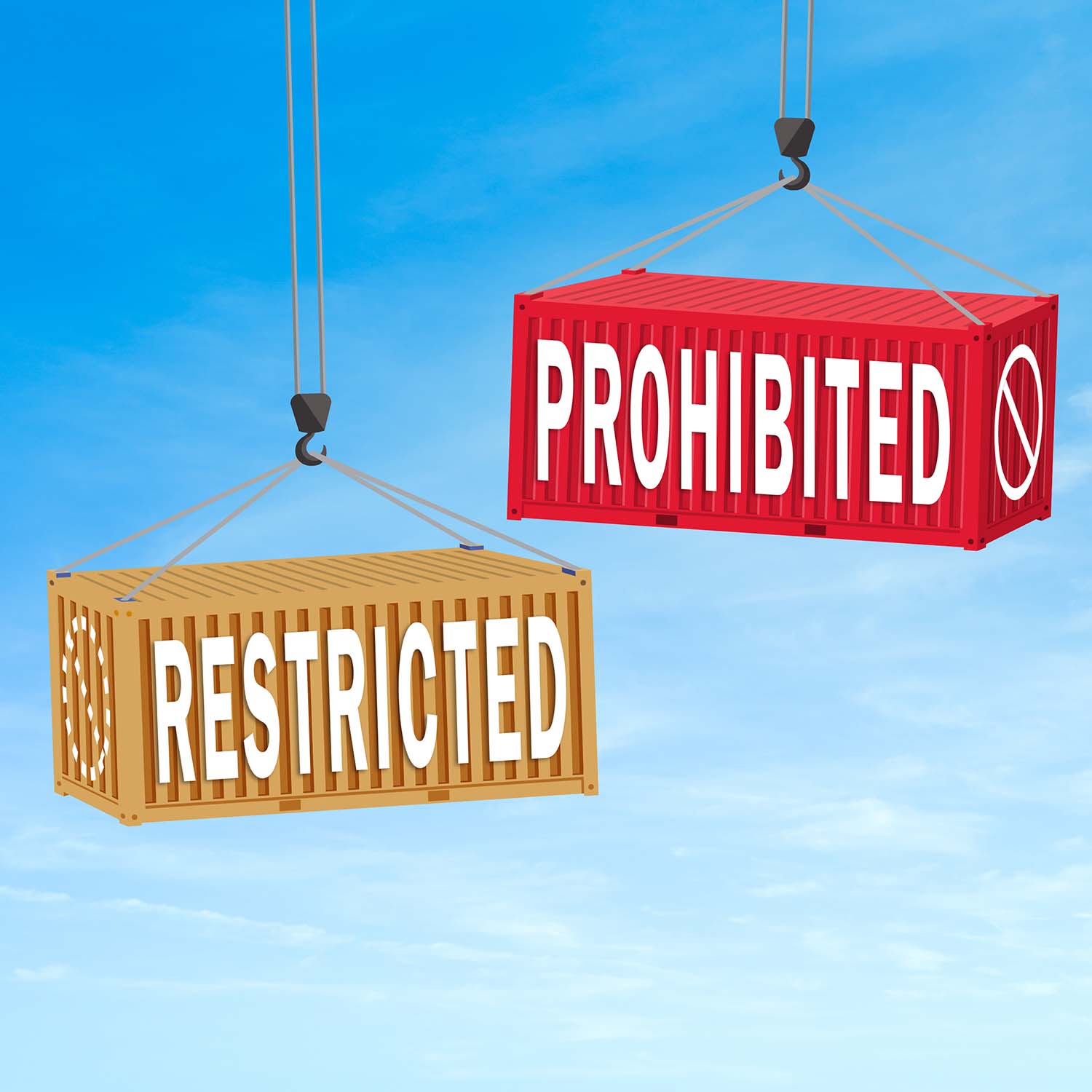Import: Restricted and Prohibited
Restrictions and Prohibitions
All countries restrict or prohibit the import and export of certain articles based upon:
- Concerns for health, safety, and public morality (e.g., foodstuffs, agricultural products, live animals, biologic materials, pharmaceuticals, illicit drugs, chemicals, hazardous products, and materials deemed indecent).
- Protection of the physical and economic security of the state (e.g., arms, armaments, dual-use technology, radio and television transmitters and receivers, radioactive materials, seditious materials, and currency).
- Economic protection or subsidization of domestic industry (e.g., non-tariff barriers to trade for imports and control of natural resources for exports).
- Enforcement of provisions of multi-lateral trade agreements (e.g., those designed to protect endangered and threatened species of animals and plants and those designed to protect copyright, patent, and trademark holders against infringement).
Restricted and Prohibited
- Narcotics
- Live fish
- Predators of any size
- Images representing children in a degrading or ridiculous way
- Used clothes that are not part of your personal luggage
- Firearms and ammunitions
- Electronic cigarettes
In the case of medical devices and health care products, there are additional requirements. First, the products must comply with applicable standards. Second, foreign manufactured products need to have a legally appointed representative/distributor in Mexico. Third, the products must be registered with the Secretariat of Health (Secretaría de Salud or SSA) prior to being sold in Mexico.
Except for blood, blood derivative products, and organs, almost all medical products can be imported into Mexico, provided they comply with existing regulations.
Note: The above information is subject to change. Importers are advised to obtain the most current information from a customs broker, freight forwarder, logistics professionals, or local customs authorities.
Sources: National Customs Agency of Mexico (Agencia Nacional de Aduanas de México or ANAM), International Trade Administration, US Department of Commerce
Article written for World Trade Press by Felicia Topp, Jennifer Goheen, and Nina Bellucci.
Copyright © 1993—2024 World Trade Press. All rights reserved.

 Mexico
Mexico 